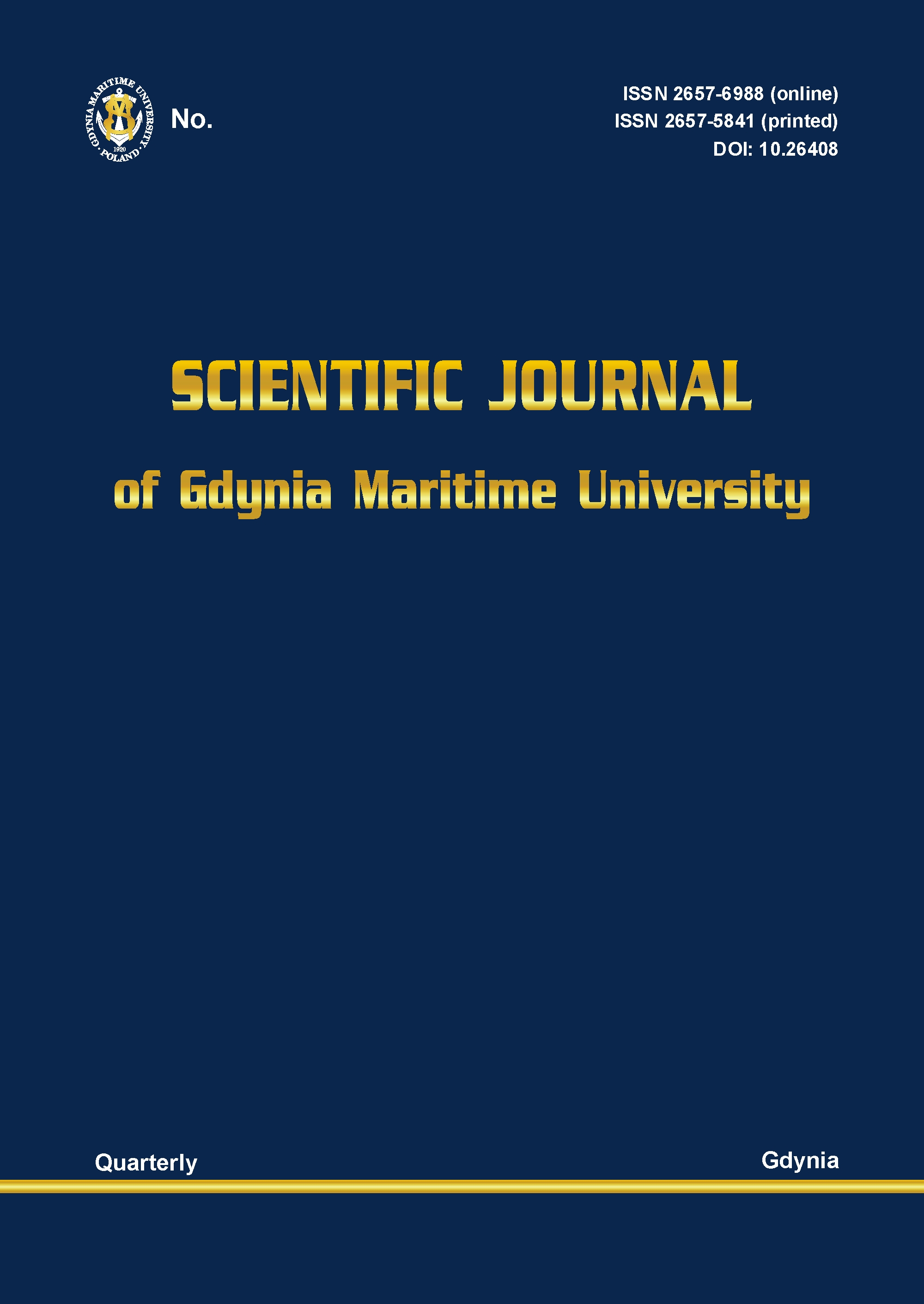abbr. SJ GMU
ISSN 2657-5841 (printed)
ISSN 2657-6988 (online)
DOI: 10.26408
121
The current issue of the Scientific Journal of Gdynia Maritime University presents articles on broadly understood transport, including climate-friendly transport, maritime transport, underwater transport, and dematerialisation of bills of lading in the context of maritime transport. The last article of this issue is an exception and relates to economic and quality determinants of Yerba Mate, tea and coffee consumption.
The first paper analyses factors influencing climate-friendly transport and presents a model to explain them and to assess their impact. The authors created a model to identify the relationships between the 21 measured influential factors and four latent constructs: technology, legislative, and socioeconomic factors, and green transportation.
The second paper describes the research project called ‘Batychron’, created as part of the scientific activity conducted by the Student Scientific Underwater Research Society – Sea Quest operating at the Faculty of Navigation of the Gdynia Maritime University. Batychron is a ‘device applicable in hydraulic engineering for underwater transport and diving with the safety of human life’, and the paper presents its construction and application.
The subject of the next paper is the dematerialisation of bills of lading. The paper indicates the need for dematerialisation of bills of lading in maritime transport practice, and the possibility of replacing the paper bills of landing with blockchain bills of landing.
The author of the fifth paper points out the need to identify the aspects that have an impact on the factors determining the safe distances to be maintained between ships in order to find relationships that will be useful for the development of autonomous ships. In the longer term, a study to be presented in the paper will determine the impact of Automatic Identification System (AIS) data on the navigation safety of small autonomous ships.
The last paper characterises Yerba Mate, coffee and tea as products that can be mutual substitutes. The paper presents the economic conditions of production and consumption of these products and a comparison of their stimulant, antioxidant and sensory properties. Moreover, the correlation between the economic and qualitative attributes of their consumption is analysed in the context of their potential
as substitutable goods.
Agnieszka Blokus-Dziula

-
Pages:7- 19
-
Pages:20- 27
-
Pages:28- 40
-
Pages:41- 52
-
Pages:53- 66
